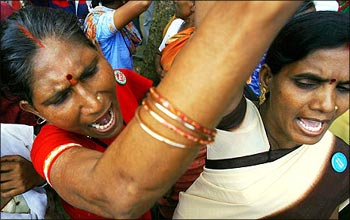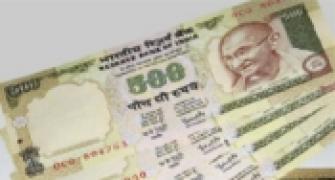 Units located in special economic zones (SEZs) are likely to retain the income tax concessions even after introduction of the Direct Taxes Code.
Units located in special economic zones (SEZs) are likely to retain the income tax concessions even after introduction of the Direct Taxes Code.
A compromise is being worked out by the commerce and revenue departments, though a continuation of the tax dispensation will come with certain riders for units in the duty-free enclaves as well as SEZ developers.
The riders would be in the form of amendments to the SEZ Policy, which the ministry of commerce and industry is currently working on. The government is contemplating the introduction of certain eligibility criteria for the units to obtain the tax concessions.
"A compromise solution is being worked out. Changes in the SEZ Policy would be made soon but that does not mean there will be some kind of major shock therapy. We are trying to smoothen the process of transition, without creating problems of dislocation," a senior commerce department official told Business Standard.
For instance, cases which have got more than a year extension, over and above the mandated three years to begin their work, are likely to be disqualified for the tax concessions. Also, those units that have failed to earn the required net foreign exchange (NFE) within the stipulated time would not be eligible for the tax holiday.
The provision to discontinue the tax benefits has resulted in severe backlash from the developers, as well as companies who have already put in large amount of investments into the projects, which have a large gestation period.
An SEZ project, once approved, is given three years to start operations. It can also get extension for not more than one year to finish the work, after permission from the Board of Approval (BoA).
The revised discussion paper on the Direct Taxes Code has suggested continuation of the 15-year tax holiday on those units who would be operational by the end of March 2011.
In other words, the units have to launch operations and begin exporting before March 2011 to avail of income-tax concessions available for SEZ units, even if they have got all the necessary approvals.
However, earlier this month Finance Minister Pranab Mukherjee said that the government would be giving additional time to the companies to begin their operations over and above the March 31, 2011 deadline.
The proposal to discontinue income tax benefits to the SEZ units has also not been favoured in the political sphere. During a recent meeting of the National Development Council, Andhra Pradesh Chief Minister K Rosaiah, Tamil Nadu Chief Minister M Karunanidhi, and Karnataka Chief Minister B S Yeddyurappa asked Prime Minister Manmohan Singh to ensure the incentives given in the SEZ Act were not taken away under the DTC regime.
Investments to the tune of Rs 1,66,526 crore (Rs 1,665.26 billion) have been made in SEZs so far. In 2009-10, export of goods and services from SEZs was estimated at Rs 2,20,711 crore (Rs 2,207.11 billion), which was 121 per cent higher than the previous year's level. At present, there are 114 operational SEZs across the country with more than 1,800 units that employ 550,323 people.
So far, the BoA, the single-window clearing agency for SEZs, has accorded formal approval to 576 SEZs, of which 358 have been notified, according to data compiled by the Ministry of Commerce and Industry.
SEZ units are given 100 per cent tax exemption for the first five years, 50 per cent for the next five years and 50 per cent of the ploughed back export profit in the following five years under section 10 AA of the Income Tax Act.
Under section 115JB of the IT Act they are also exempted minimum alternate tax. Besides these, the SEZ units are also exempted from central sales tax, service tax, state taxes and levies.
Image: Women shout slogans during a demonstration by people displaced by proposed SEZ near Mumbai. Photograph: Reuters









